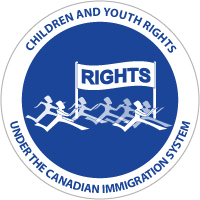|
Current issue and campaign pages: Rolling Back Refugee Protection: At what cost? Conditional permanent residence proposal Demand protections for migrant workers in Canada Canada has work to do: Respect non-citizen children and youth rights |
|
Upcoming CCR meetings in 2012:
Spring Consultation, Thursday, May 31 - Saturday, June 2, Fredericton Fall Consultation, Thursday, November 29 - Saturday, December 1, Toronto |
CONTENTS:
- Protecting Refugees from Bill C-31: Time to take action
- How will you mark Refugee Rights Day this April 4th?
- Conditional Permanent Residence: Increasing vulnerability and violence
- Sponsoring Parents and Grandparents: Citizenship and Immigration Canada (CIC) wants to hear from you
- Participate in the CCR Spring Consultation, Fredericton, 31 May – 2 June
---
 On 16 February 2012, the government issued Bill C-31 to reform Canada’s refugee determination system.
On 16 February 2012, the government issued Bill C-31 to reform Canada’s refugee determination system.
Since our last update we’ve learned that the final session of debate in the House of Commons on second reading of the bill will not take place until after 22 April. MPs are on a break and likely to be in their ridings between 6 and 22 April. It’s a good time to speak with them or meet them in person, so the time to act is NOW. Members of Parliament (MPs), friends, neighbours, colleagues and other members of the public need to know why this new legislation is bad for refugees and bad for Canadian communities.
Contact your Member of Parliament
Thanks to everyone who has been contacting Members of Parliament and speaking out about how Bill C-31 fails refugees and Canadians. Please continue to do so. You’ll find resources to contact your MP with your concerns on Bill C-31 and encourage others to do the same at: http://ccrweb.ca/en/write-your-member-parliament
Already contacted your local Member of Parliament? Contact MPs on the Parliamentary Standing Committee who will be studying the bill after second reading. You'll find their contact details at: http://ccrweb.ca/sites/ccrweb.ca/files/cimm2012.xls.
Go Public: Talk about the impacts of Bill C-31 with neighbours, friends and others in your community
Demonstrating the human impacts of this bill is one of the best ways to speak out against it. Talk to friends about the potential impacts on individual refugee claimants. Show your opposition to the Bill in public demonstrations. Use individual stories when talking to the media. Each story, each case can convince others that Bill C-31 is a bad policy for refugees and for Canadians.
Speak out against Bill C-31 through social media networks
If you use Facebook and Twitter, use your social networks to take part in a 'Twitter Action Day' against Bill C-31 on Refugee Rights Day, this April 4th (and beyond). For more information on how to get involved (and for model tweets!), see: http://ccrweb.ca/en/social-media-c31
Background:
The CCR is seriously concerned that Bill C-31 will create a two-tier system of refugee protection in Canada. It makes refugee protection in Canada dangerously vulnerable to political whims, rather than ensuring a fair and independent decision about who is a refugee. It also includes costly measures to detain refugee claimants and to revoke the status of refugees who are now permanent residents.
Bill C-31 must be withdrawn and replaced with legislation which is fair, affordable, and independent, and which complies with the Charter and Canada’s international obligations.
Despite efforts by the opposition to make amendments to the bill, the government is determined to push it through Parliament quickly. It has presented a motion to limit debate on Bill C-31, which will see the bill voted on and sent to a parliamentary standing committee for study very soon.
For more information, and all of the resources listed above, see: http://ccrweb.ca/en/refugee-reform
 April 4th is the anniversary of the Supreme Court’s 1985 Singh decision, an important milestone for refugee rights in Canada. In 2012, a number of issues affecting refugees are in the spotlight. Refugee Rights Day is a good time to reflect on the Singh decision and what it means for refugees today. Join the CCR is upholding non-citizen children’s rights, protecting refugees from Bill C-31 and in speaking out for what you want for refugees in Canada.
April 4th is the anniversary of the Supreme Court’s 1985 Singh decision, an important milestone for refugee rights in Canada. In 2012, a number of issues affecting refugees are in the spotlight. Refugee Rights Day is a good time to reflect on the Singh decision and what it means for refugees today. Join the CCR is upholding non-citizen children’s rights, protecting refugees from Bill C-31 and in speaking out for what you want for refugees in Canada.
Take action and help raise awareness of refugee rights in your community at a local event. Are you in Toronto? Calgary? Kitchener-Waterloo? Montreal? Check for Refugee Rights Day events taking place near you. Are you planning an event? Share the news on the CCR’s calendar at: http://ccrweb.ca/en/events-calendar
Or take action as an individual. Speak out using social media this Refugee Rights Day: http://ccrweb.ca/en/social-media-c31
There’s no shortage of ways you can speak out for refugee rights in Canada this April 4th. For additional activities, ideas, videos and other resources, go to: http://ccrweb.ca/en/refugee-rights-day
 In March 2012, the federal government announced a revised proposal to introduce a conditional permanent residence period for sponsored spouses. In March 2011, the government originally proposed a period of conditional permanent residence of two years or more for sponsored spouses and partners who have been in a relationship of two years or less with their sponsors. If the sponsored spouse or partner does not remain in a conjugal relationship and cohabitate with their sponsor during the conditional period, their permanent residence could be revoked, and they could be deported.
In March 2012, the federal government announced a revised proposal to introduce a conditional permanent residence period for sponsored spouses. In March 2011, the government originally proposed a period of conditional permanent residence of two years or more for sponsored spouses and partners who have been in a relationship of two years or less with their sponsors. If the sponsored spouse or partner does not remain in a conjugal relationship and cohabitate with their sponsor during the conditional period, their permanent residence could be revoked, and they could be deported.
In response to concerns expressed about the vulnerability of sponsored partners in abusive relationships, the revised proposal states that “the proposed condition would cease to apply in instances where there is evidence of abuse or neglect, or of a failure to protect from abuse or neglect by a person related to the sponsor”. CIC is developing guidelines for this.
While the modifications to the original proposal are welcome, the CCR is concerned that the exemption for abused partners will not be effective, due to obstacles including:
- barriers to access of information (about the exemption), including language barriers
- the burden of proof is all on the abused partner to provide evidence of abuse and evidence that the partners lived together until being separated due to abuse
- there are costs associated with providing such evidence, which would be an additional burden to the abused person
The new proposal is open for public input until April 9th and we encourage you and/or your organization to:
- submit comments to: Caroline Riverin Beaulieu at Caroline.RiverinBeaulieu@cic.gc.ca
- speak with your Member of Parliament (MP)
- write to the Minister of Citizenship and Immigration
In your communications, please share or draw from the CCR’s document Conditional Permanent Residence: Increasing vulnerability and violence. It includes facts about the proposal, key concerns, and personal stories illustrating impacts on sponsored spouses in abusive relationships.
Visit http://ccrweb.ca/en/conditional-permanent-residence for more information.
- Sponsoring Parents and Grandparents: Citizenship and Immigration Canada (CIC) wants to hear from you
The CCR will be responding to CIC’s online questionnaire as part of the "Stakeholder and Public Consultations on a Redesigned Parent and Grandparent Immigration Program". The CCR encourages other organizations and individuals to submit their feedback. The deadline is May 25th.
In the coming weeks, we will also be producing a resource outlining concerns and possible responses to this issue. Write to Marisa Berry Mendez at mberrymendez@ccrweb.ca with concerns, positions, and proposals for a redesigned parent and grandparent immigration programs in Canada.
Some of the questions being addressed by CIC are:
- How should application intake be managed?
- Should we try to ease the economic impact of parents and grandparents?
- Should we redefine the eligibility of family members who accompany parents and grandparents?
- Should we emphasize a commitment to Canada on the part of sponsors?
- Should we focus on special needs or exceptional cases?
The CIC backgrounder lists some of the options being considered, including:
- Lifetime sponsorship (to reduce/eliminate social assistance costs)
- fees (similar to the $40,000 fee per person charged by Australia to some sponsored parents)
- raising the minimum necessary income
- Adopting the “balance of family test” where parents and grandparents must have at least half of their children residing permanently in Canada to be eligible for sponsorship
- Restricting eligibility to sponsors who are Canadian citizens; currently permanent residents are eligible to sponsor their parents and grandparents.
- Limiting the applications to “exceptional cases” by, for example, requiring that the parent or grandparent “be widowed or have other exceptional needs.”
As there will be some in-person consultations, you may want to contact CIC to find out whether there will be one in your area, in order to participate. At least one consultation has already taken place in Vancouver.
For more information see: http://www.cic.gc.ca/english/department/media/releases/2012/2012-03-23.asp
- Have you registered for the CCR Spring Consultation on Cent-sible Justice: Affordable solutions for refugees and immigrants?
 The CCR is holding its national Spring Consultation Cent-sible Justice: Affordable solutions for refugees and immigrants in Fredericton from 31 May to 2 June. Discussions will address issues relating to newcomer settlement and integration, refugee resettlement and refugee protection.
The CCR is holding its national Spring Consultation Cent-sible Justice: Affordable solutions for refugees and immigrants in Fredericton from 31 May to 2 June. Discussions will address issues relating to newcomer settlement and integration, refugee resettlement and refugee protection.
In addition to the theme of Cent-sible Justice, workshop topics include:
- Bill C-31: Canada’s refugee protection system and recent changes
- Monitoring mental health: settlement workers, emerging issues, and deportation
- Spotlight on Syria
- Focus on francophone communities: refugee sponsorship and integration services
- Addressing the root causes of displacement
- Youth issues and the Convention on the Rights of the Child
…and much more.
Information and online registration are available at: ccrweb.ca/meetings Register now! The early registration deadline is 11 May 2012.
-----
Want to read this newsletter online? Go to: ccrweb.ca/en/chronicle
Looking for other ways to stay in touch with the CCR and refugee and immigration issues? Subscribe to receive updates from the CCR on Twitter and Facebook:
To join the CCR on Facebook: facebook.com/ccrweb
To follow the CCR on Twitter: twitter.com/ccrweb
To view CCR videos on YouTube: youtube.com/ccrwebvideos
